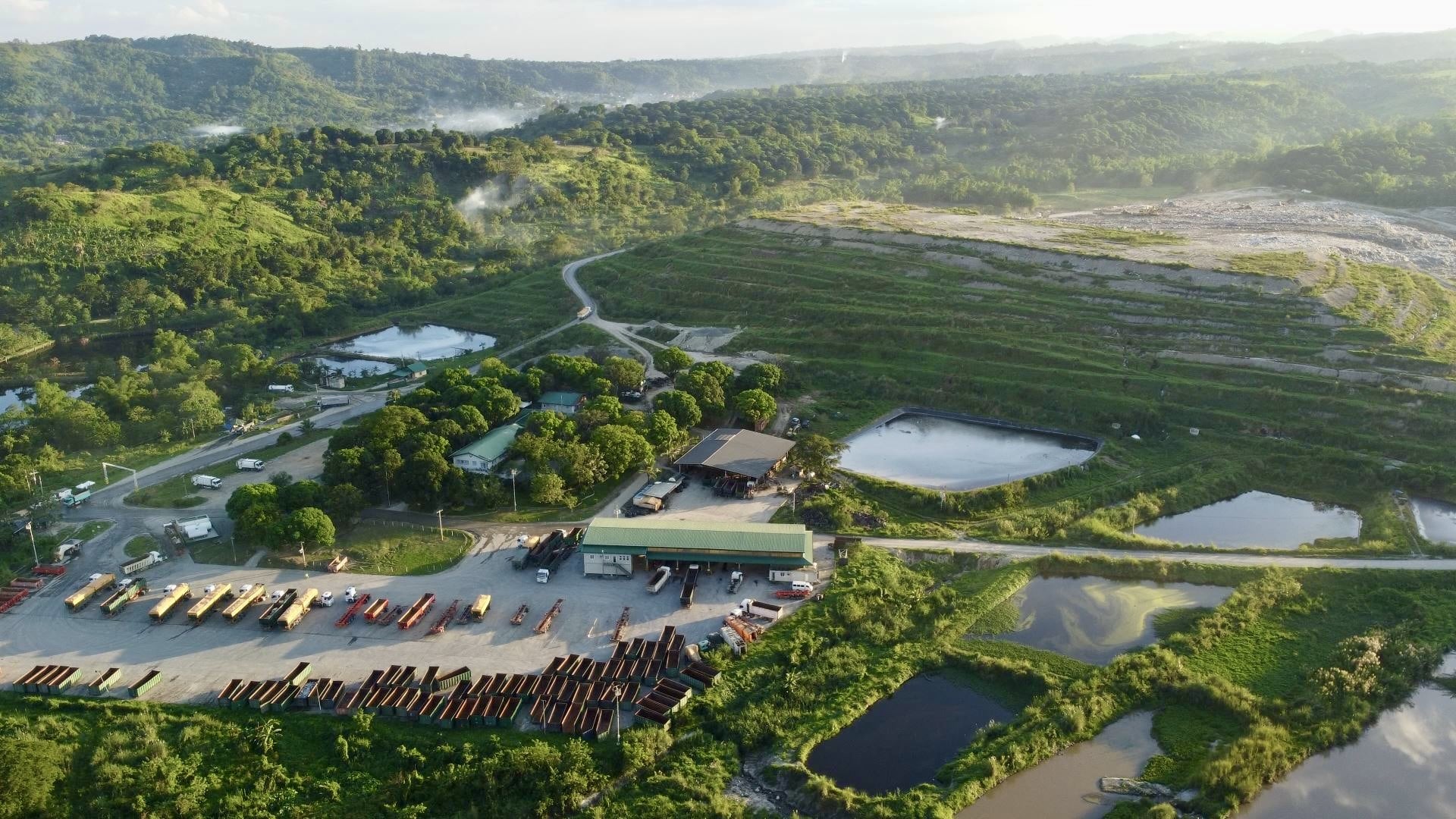Tarlac landfill closure delayed as TRO extended

REPRIEVE The Oct. 6 closure of the 100-hectare Kalangitan sanitary landfill of Metro Clark Waste Management Corp. in Capas, Tarlac, shown in this undated photo, has been halted due to the extended TRO issued by a local court. —Photo courtesy of MCWMC
MABALACAT CITY, PAMPANGA, Philippines — A regional trial court (RTC) in Capas, Tarlac, extended the 72-hour temporary restraining order (TRO) against the Clark Development Corp. (CDC) preventing the state-owned corporation from closing the 100-hectare sanitary landfill inside the New Clark City.
In a three-page order on Tuesday, Judge Ronald Leo Haban of Capas RTC Branch 66 extended the TRO it issued on Oct. 4 to 20 days or until Oct. 24, giving the Metro Clark Waste Management Corp. (MCWMC) more time occupying the Kalangitan sanitary landfill area.
The CDC was supposed to take over the 100-ha landfill area in the upland Cutcut II village, Capas, located within the 9,450-ha New Clark City, on Oct. 6, the expiration of the 25-year contract for services signed by the CDC and MCWMC’s predecessor and parent company, the Ingenierburo Birkhahn + Nolte GmbH and Heers & Brockstedt GmbH & Co.
READ: Closure of Tarlac landfill halted for 72 hours
In a statement on Tuesday, the CDC said that it already received the Capas court’s new TRO.
Article continues after this advertisement“[The] CDC will comply with this latest court order in connection with its contract with MCWMC,” it said but maintained that the contract had expired on Oct. 6.
Article continues after this advertisementAccording to the CDC, it will seek guidance from the Office of the Government Corporate Counsel (OGCC) “on the appropriate action to take in light of this new development.”
The MCWMC and the CDC are locked in a legal battle at the Angeles City RTC Branch 114.
In May this year, MCWMC filed a civil case for reformation of the instrument, fixing of period, specific performance, and damages against the CDC and the Bases Conversion and Development Authority (BCDA), seeking to amend the 25-year contract by including the “automatic renewal” of the contract for another 25 years.
The landfill operator is also asking for P101 million in damages and legal expenses from the CDC and the BCDA.
In response, the CDC, filed a counterclaim amounting to P45 million against the MCWMC.
Rental fee
The MCWMC said in the civil case that the contract that its parent company entered into with the CDC in 1999 had a lease component where the royalty it pays to the state-owned firm serves as a rental fee.
But in its counter affidavit, the CDC said the contract had no provision on the lease of any CDC property or the automatic renewal of its fixed 25-year term.
The CDC said the contract only stipulated that the CDC would turn over a 100-ha property to the German consortium, which would construct and operate an integrated waste management center with a sanitary landfill equipped with leachate control and disposal systems and gas management.
In the contract, the landfill operator is obligated to pay the CDC $1.50 per ton of nonhazardous solid waste collected outside of Clark as the state-owned firm’s share of the waste disposal tipping fee. Local governments and businesses in Central Luzon and some areas of northern Luzon dump their trash in the Capas landfill.
Aside from providing the 100-ha land area, the CDC is also obligated under the contract to provide power, telecommunications and water lines, and reasonable road access to the upland landfill area.
The MCWMC, in the civil suit, said that the contract was covered by the Foreign Investors’ Lease Act (Republic Act No. 7652), which allows foreign companies to lease lands up to 50 years and renewable for another 25 years, and by Executive Order No. 429, Series of 1997, which gives the same privilege to Filipino investors.
The CDC, on the other hand, maintained that its contract for service with the German consortium is covered by the Build Operate Transfer (BOT) Law (RA 6957 as amended by RA 7718) as certified by the Office of the President in November 2000, signed by then Executive Secretary Ronaldo Zamora. The BOT Law provides fixed terms for contracts to operate utilities and facilities.
Cheaper option
In Baguio City, the local government has learned that the landfill at Urdaneta City has reopened following the rehabilitation of an access bridge there, giving Baguio a cheaper alternative for its waste given the impending closure of the Capas landfill.
City Administrator Bonifacio dela Peña first announced the possibility of hauling most of the city’s daily 550-ton trash to the Pangasinan facility at a media briefing last week. It was again discussed by Mayor Benjamin Magalong during a meeting of city managers on Tuesday.
General Services Officer Eugene Buyuccan has begun negotiating terms with the landfill operator in Urdaneta, which is an 80-kilometer drive from Baguio.
Dela Peña said returning to the Urdaneta facility would reduce the city’s P180 million to P200 million annual expenses for shipping garbage to Tarlac. —with a report from Vincent Cabreza